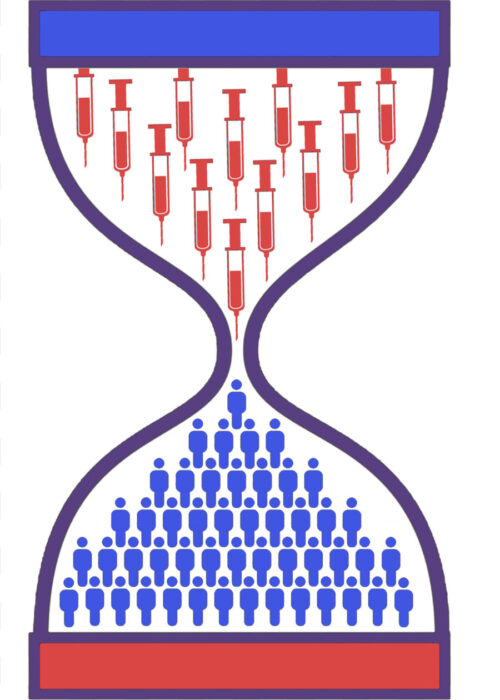On January 20th, students received an email from the University Health Services (HUHS) indicating that Harvard had acquired shipments of and received approval to distribute the COVID-19 vaccine. Throughout the nation, underdog states like West Virginia are leading in vaccine distribution without priority-based phases, while wealthy states like California lag behind and face issues with vaccine scarcity. Thus, many students wonder if Harvard might offer them the fastest access to a vaccine. The anticipation of immunization from COVID-19 holds immense value for a student body filled with freshmen who haven’t met in person, seniors who long for a normal goodbye after an abnormal final year of college, and professors and teaching staff eager to deliver their lectures in person, among other members of our community.
So what does Harvard’s vaccine rollout timeline look like? At what point will Harvard vaccinate its faculty, staff, and students? Will vaccination be mandatory? And of course, what is the possibility of a full student body, on campus, in person, for a normal Fall term?

Harvard’s vaccine distribution must follow the Massachusetts state guidelines which prioritize groups based on risk factors. The state has completed Phase 1, which included “clinical and non-clinical health care workers doing direct and COVID-facing care; long term care facilities, resting homes and assisted living facilities; first responders; congregate care settings; home-based health care workers; and health care workers doing non-COVID-facing care. Massachusetts has begun Phase 2, now vaccinating people over the age of 75; the rest of Phase 2 is expected to last through March, with the plan to vaccinate first based on age and comorbidities, and then to many workforce individuals, primarily in fields of education, food, transportation, law, and medicine. The Massachusetts website ensures individuals that COVID-19 vaccines are safe and will always be free.
Phase 3 holds hope for student vaccination opportunities. In April, Massachusetts plans on opening vaccine distribution to the general public — including us, college students. While remaining at home until April may sound soul-shatteringly disappointing, other states like California do not anticipate opening vaccination to the general public until June. Students who receive their vaccination in Massachusetts will need to book an appointment and show proof of identification before receiving their first round of vaccination, along with a vaccination record card that should be kept to ensure individuals receive the same vaccine for the second dose.
What is HUHS’s role in Phase 3? While HUHS declined to comment, their website for COVID-19 vaccination offers a broad overview of vaccine status at Harvard. Their February 1st update states, “at this time, HUHS does not have a supply of vaccine to provide to patients.” But HUHS will notify community members upon the arrival of vaccine shipments, and specifically reach out to patients once their vaccination group has been approved for inoculation. The vaccine is not mandatory, HUHS says, but it is highly encouraged.
Though Harvard’s current COVID-19 case rates are relatively low, they are many times higher than the rates during the fall term. Within the last seven days, Harvard has run 18,052 COVID-19 tests, only 43 of which have come back positive, leaving the school with a 0.24% positivity rate. Yesterday, of the 3,823 tests analyzed, nine were positive; five of these tests belonged to faculty, staff, and other affiliates, three belonged to graduate students, and only one was attributed to an undergraduate. Cambridge as a whole holds a 1.31% positivity rate; the figure grows to 3.23% in Boston, and 3.61% in Massachusetts.
These numbers mirror national spikes in infection rates that resulted from holiday gatherings and travel. College students are generally not at high-risk for COVID-19 complication if they contract the disease, but higher case rates contribute to the inevitable fear of missing out on what are described as the prime years of our lives. This feeling is tangible, both for the students in Zoom classrooms and for the many others who chose to take time off from school.
However, given the speed at which Massachusetts hopes to roll out the COVID-19 vaccine and the low infection rates among undergraduates throughout the 2020 fall term, there is hope for a normal, or perhaps more normal, 2021 fall term. The next few months — during which we will observe the trajectory of infection rates and witness the vaccine’s defense against aggressive new COVID-19 strains — will dictate whether this prospect will become a reality.
Lulu Patterson ’24 (lpatterson@college.harvard.edu) is eager to get vaccinated.

